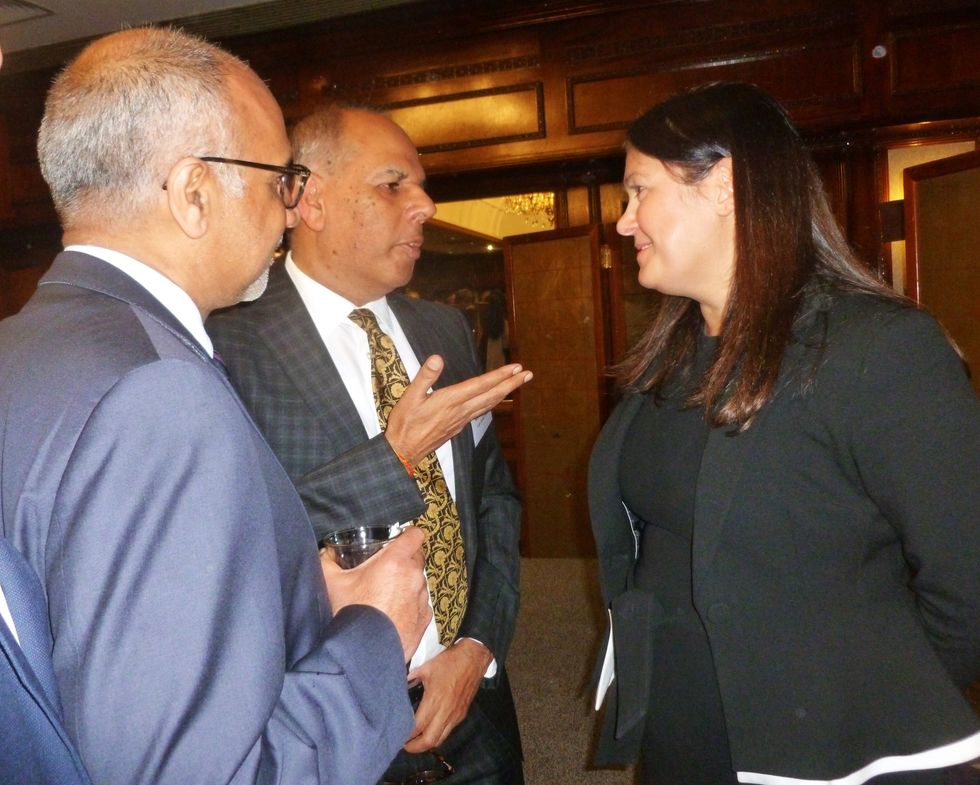The year is 2025 and militants have attacked India's parliament, killing most of its leaders. New Delhi retaliates by sending tanks into the part of Kashmir controlled by Pakistan.
Fearing it will be overrun, Islamabad hits the invading forces with its battlefield nuclear weapons, triggering the deadliest conflict in history -- and catastrophic global cooling, with temperatures not seen since the last Ice Age.
This scenario was modeled by researchers in a new paper published on Wednesday (2), which envisaged more than 100 million immediate deaths, followed by global mass starvation after megatons of thick black soot block out sunlight for up to a decade.
It comes at a time of renewed tensions between the two South Asian rivals, which have fought several wars over the Muslim-majority territory of Kashmir and are rapidly building up their atomic arsenals.
They currently each have about 150 nuclear warheads at their disposal, with the number expected to climb to more than 200 by 2025.
"Unfortunately it's timely because India and Pakistan remain in conflict over Kashmir, and every month or so you can read about people dying along the border," Alan Robock, a professor in environmental sciences at Rutgers University, who co-authored the paper in Science Advances, told AFP.
India's prime minister Narendra Modi scrapped the autonomy of the part of Kashmir controlled by New Delhi in August, with his Pakistani counterpart Imran Khan warning the United Nations last week the dispute could escalate into nuclear war.
The two countries last fought a border conflict in February, but they pulled back from the brink after Pakistan returned a downed pilot to India.
India has a "no first strike" policy, but reserves the right to mount a nuclear response to any hit by weapons of mass destruction.
Pakistan has declared it would only use nuclear weapons if it could not stop an invasion by conventional means or were attacked first with nuclear weapons.
The authors wrote that although their scenario had Pakistan pulling the trigger first, they did not mean to imply they believed this was more likely.
- Mass starvation -
Based on their current populations and the urban centers that would be likely targeted, the researchers estimated up to 125 million could be killed if both countries expended the bulk of their highest yield weapons.
Around 75-80 million people were killed in World War II.
This most extreme scenario would involve the use of 100 kiloton weapons, more than six times as powerful as the bombs dropped on Hiroshima.
A single airburst from such a bomb could kill two million people and injure 1.5 million -- but most of the deaths would occur from the raging firestorms that followed the blast.
"India would suffer two to three times more fatalities and casualties than Pakistan because, in our scenario, Pakistan uses more weapons than India and because India has a much larger population and more densely populated cities," the paper said.
As a percentage of its urban population, though, Pakistan's losses would be about twice those of India.
But nuclear Armageddon would be only the beginning.
The research found that the firestorms could release 16 million to 36 million tons of soot (black carbon) into the upper atmosphere, spreading around the world within weeks.
The soot in turn would absorb solar radiation, heating the air up and boosting the smoke's rise.
Sunlight reaching the Earth would decline 20 to 35 percent, cooling the surface by 3.6 to 9 degrees Fahrenheit (2 to 5 degrees Celsius) and reducing precipitation by 15 to 30 percent.
Worldwide food shortages would follow, with the effects persisting up to 10 years.
"I hope our work will make people realize you can't use nuclear weapons, they are weapons of mass genocide," Robock told AFP, adding the paper lent more evidence to support the 2017 UN Treaty on the Prohibition of Nuclear Weapons.
Johann Chacko, a columnist for Quartz India and doctoral student at SOAS in London, said the work "helps the global community evaluate the cost of nuclear war for everyone, not just the combatant nations," particularly its climatic impacts.
But, he added: "There's very little in the history of Indo-Pakistan kinetic conflict to suggest that leadership on either side would continue escalating until they annihilated the other."
















 The culture secretary with Shailesh Solanki and Kalpesh Solanki from the Asian Media Group (AMG), publishers of Eastern Eye
The culture secretary with Shailesh Solanki and Kalpesh Solanki from the Asian Media Group (AMG), publishers of Eastern Eye